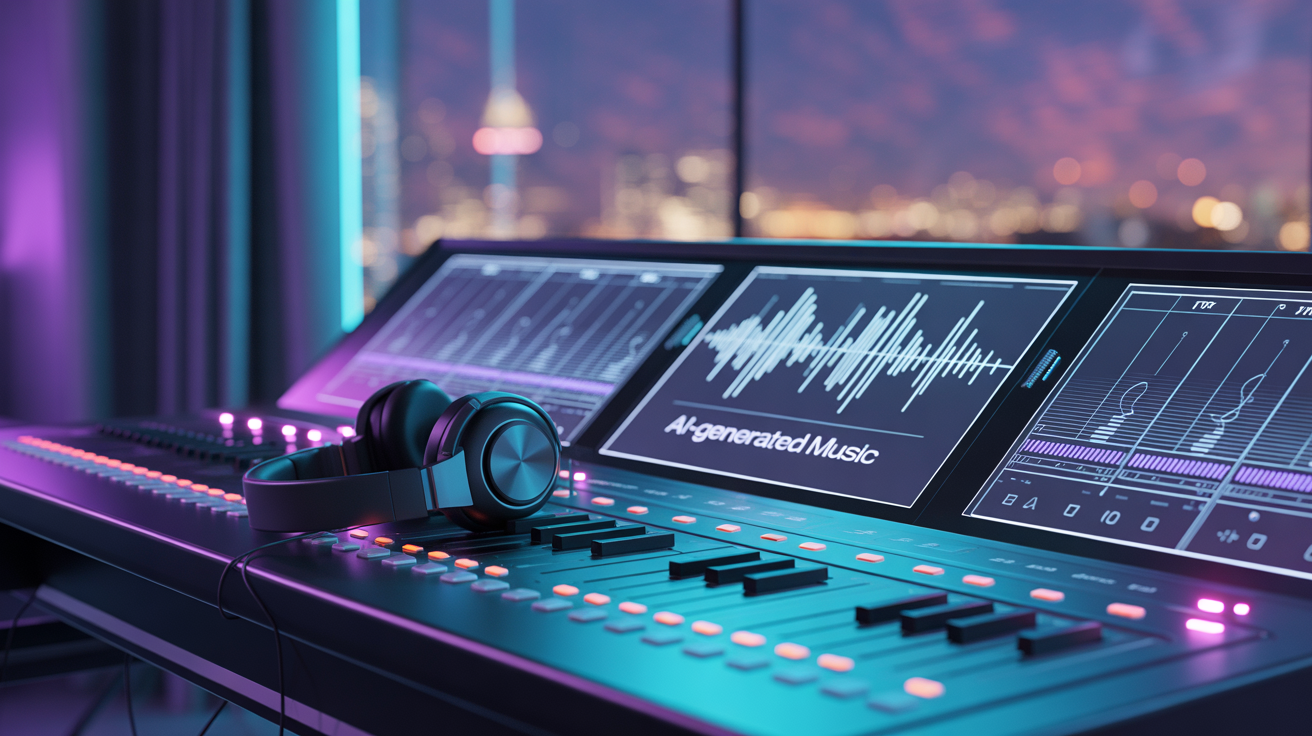
AI-generated music: how it’s changing the charts
From TikTok trends to Spotify playlists, music is constantly evolving—and the latest game changer is AI-generated music. With artificial intelligence now able to compose songs, craft melodies, and even mimic iconic voices, the music world is witnessing a shake-up unlike any other. For the Gen Z and millennial music lovers, trend-watchers, and fandom communities, understanding how AI alters the soundscape and influences chart-topping hits has become essential. This article dives deep into how AI-generated tunes are shaping the music industry, what this means for artists and fans alike, and how cultural movements connected to this tech revolution are creating new ways for you to stay connected, engage, and discover what’s next.
How AI composes the new hit songs
AI music creators use complex algorithms and massive data sets of past hits to generate melodies, beats, and lyrics that resonate with listeners. Tools like OpenAI’s Jukebox or Amper Music analyze popular genres and trends, allowing AI models to produce original tracks with remarkably human-like qualities.
These systems don’t just copy existing tunes—they blend influences to birth fresh, hybrid sounds. For example, AI can fuse elements of K-pop with trap beats or create lo-fi chillhop with classical overlays, generating cross-genre hits that captivate eclectic, social media-active listeners.
Platforms like Amper Music or OpenAI Jukebox allow musicians and hobbyists alike to experiment with AI-generated compositions, sparking new viral sensations.
Impact on the charts: AI’s growing footprint
AI-produced tracks are increasingly charting alongside human-made hits. Since AI can analyze what resonates most with listeners in real-time, it tailors songs aligned with streaming platform data and social media buzz, leading to higher engagement rates and chart success.
Here’s a quick look at how AI-generated music is making waves on the charts:
| Year | AI-related chart milestone | Example |
|---|---|---|
| 2019 | First AI-created song released commercially | “Daddy’s Car” by Sony’s Flow Machines |
| 2021 | AI-assisted song gains viral popularity on TikTok | Several indie artists leveraging AI beats |
| 2023 | AI collaborative album hits Billboard Top 100 | Yona AI & human producers |
| 2024 | AI music used in top playlist curations | Spotify’s AI-curated Discover Weekly |
Such data highlights AI’s growing influence in mainstream music, making it not just a tool but a creative partner that shapes and drives chart success.
The evolving artist-fan relationship in the AI era
Unlike the traditional artist-listener dynamic, AI-generated music blurs boundaries between creator and consumer. Fans today can engage actively with AI by generating remixes, personalizing tracks, or even contributing to AI’s learning process by sharing their preferences on social platforms.
Communities form around specific AI tools or AI-driven songs, fueling discussions and cultural movements on platforms like Discord, Reddit, and TikTok. This participation fosters a sense of belonging and co-creation, reinforcing the social patterns millennials and Gen Z crave:
- Interactive fan experiences with AI remix contests
- Collaborations blending fan input with AI-generated content
- Real-time feedback loops influencing AI musical directions
Moreover, for some artists, AI presents a way to stay innovative and relevant while allowing fans access to exclusive behind-the-scenes looks at AI’s role in music creation.
Ethical debates and the future of music creation
Despite its booming popularity, AI music stirs important ethical questions. Who owns the rights to AI-generated compositions? Can AI replace human creativity or just augment it? Music communities and industry professionals debate the implications of AI’s expanding role.
Organizations like the American Society of Composers, Authors and Publishers are beginning to develop guidelines addressing AI-created works, while artists explore hybrid models of collaboration to maintain artistic integrity.
Looking ahead, AI’s integration in music promises a landscape where human creativity and machine intelligence co-exist. As this partnership deepens, fans can expect more immersive experiences, fresh genres, and evolving dialogues about what music truly means.
Conclusion: the chart-topping future is AI-powered
AI-generated music is no longer a sci-fi concept—it’s a dynamic force reshaping how hits are made, consumed, and shared. By harnessing data and blending creative styles, AI tools create songs that quickly climb the charts and resonate with socially-driven Gen Z and millennial audiences. This tech doesn’t replace artists but invites new forms of collaboration and fan engagement, blending technology, artistry, and culture like never before.
While ethical discussions continue, the impact of AI on the music landscape is clear: it’s transforming sound, the way we connect with music, and how communities form around new cultural movements. Staying informed about these trends helps you join the conversation and ride the wave of the next musical revolution.
For more insight into AI’s role in entertainment, check out Rolling Stone’s in-depth analysis and VICE’s coverage on AI music ethics.
“The future of music is a conversation between human and machine, creating harmony neither could achieve alone.”
